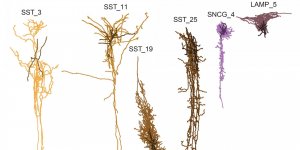| Health / Health News |
Therapy, Rehabilitation Show Promise for Long COVID Relief
Canadian researchers have found that cognitive behavioral therapy (CBT) and structured physical rehabilitation can significantly alleviate symptoms associated with long COVID, a condition affecting millions globally.

Therapy, Rehabilitation Show Promise for Long COVID Relief. Photo: tasnimnews.com
The study, conducted by McMaster University in Ontario, analyzed data from 24 trials involving 3,695 patients.
The research concluded that CBT likely reduces fatigue and enhances cognitive function in long COVID sufferers.
Additionally, intermittent aerobic exercise, performed three to five times weekly for four to six weeks, was shown to improve physical function and recovery.
Despite these promising findings, the researchers acknowledged challenges in implementing these treatments.
They noted that patients might question the safety and efficacy of these approaches, fearing the implication that long COVID is purely psychological rather than a physical condition.
Dr. Daniel Munblit, a paediatric long-term conditions expert at King’s College London who was not involved in the study, described the research as “top-quality” and commended its rigorous methodology.
“The work underscores the importance of addressing patient concerns and skepticism around CBT and rehabilitation, especially misconceptions about a psychological basis for long COVID,” Dr. Munblit said.
The study found no compelling evidence supporting alternative treatments such as certain medications, dietary supplements, or therapies like hyperbaric oxygen or transcranial stimulation.
Interventions examined included drugs like vortioxetine and leronlimab, as well as supplements such as coenzyme Q10 and synbiotics.
Long COVID continues to affect millions, with US officials estimating that one in ten individuals who contract the virus develop lingering symptoms.
In the UK, around two million people are reportedly living with the condition, including 112,000 children.
Symptoms range widely, from fatigue and breathlessness to muscle and joint pain.
Public awareness of long COVID has resurfaced following Violet Affleck’s revelation about a “post-viral infection” in 2019.
In July, she urged the LA County Board of Supervisors to reinstate mask mandates.
In the UK, however, the government has resisted reintroducing pandemic-era measures, relying instead on population immunity from vaccines and repeated infections.
While COVID surges still disrupt schools, healthcare, and public transport, officials no longer monitor the virus as they once did, reflecting a shift to pre-pandemic norms. (Tasnim News Agency)
YOU MAY ALSO LIKE





